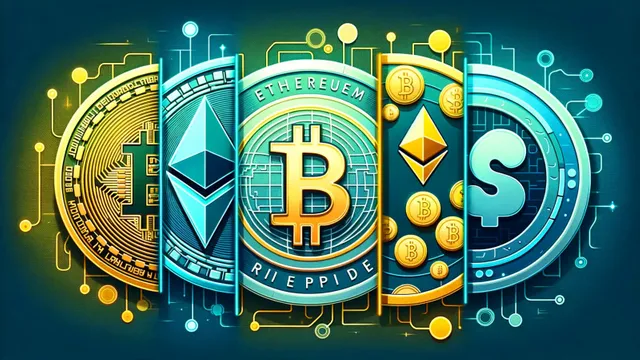🚀 The Revolution of Cryptocurrency & Blockchain Technology
)
"We are on the brink of a digital financial revolution."
The world is witnessing a transformation in the way we think about money, ownership, and transparency—all thanks to cryptocurrency and blockchain technology. But what exactly are they, and why is everyone talking about them? Let's break it down.
🌐 What is Blockchain?
Imagine a traditional ledger, like the one banks use to record transactions. Now, imagine if this ledger wasn’t held by a central authority but was shared across thousands of computers worldwide. This decentralized, digital ledger is called a blockchain.
Blockchain is designed to be secure, transparent, and immutable. Each "block" contains data, such as transaction details, that are verified by multiple participants on the network. Once verified, the block is added to a chain of previous blocks, forming a secure record that’s nearly impossible to alter. This transparency and security make blockchain the foundation for cryptocurrency, supply chains, healthcare records, and countless other applications.
💸 What is Cryptocurrency?
Cryptocurrencies are digital or virtual currencies that rely on blockchain technology for secure transactions. Bitcoin was the first cryptocurrency, created to be an alternative to traditional fiat currency. Today, we have thousands of cryptocurrencies—like Ethereum, Cardano, and Solana—each serving unique purposes and communities.
These currencies aren’t controlled by any single entity, which makes them different from traditional currencies. Instead, they are decentralized and run on a network of computers, meaning that no single organization or government controls them. Many also support smart contracts, which are self-executing contracts programmed to trigger automatically when certain conditions are met. This allows for incredible versatility and automation in various fields, from finance to real estate.
🚀 Why Does This Matter?
The impact of blockchain and cryptocurrency extends far beyond digital transactions:
Banking: Blockchain enables fast, low-cost transactions across borders, potentially transforming global banking by making it more inclusive.
Real Estate: Smart contracts on the blockchain can make property transfers faster and more transparent, removing middlemen and reducing costs.
Supply Chain: With blockchain, companies can track products from their source to the customer, increasing transparency and reducing fraud.
Healthcare: Blockchain allows for secure, shareable patient records that only authorized individuals can access, protecting patient privacy.
These applications only scratch the surface of blockchain's potential.
📈 Is Cryptocurrency Here to Stay?
Cryptocurrencies are notorious for their volatility, but the technology backing them is gaining acceptance. Major institutions, companies, and even governments are exploring blockchain-based solutions. In some countries, central banks are considering digital currencies (CBDCs) as alternatives to traditional cash. As adoption grows and blockchain technology becomes more sophisticated, its role in our financial and technological systems will likely continue to expand.
🔍 Ready to Dive In?
Learning about cryptocurrency can be both exciting and transformative. If you’re interested in exploring this new world, start by understanding the fundamentals of blockchain and cryptocurrencies, and always do your research. There’s much to discover in this ever-evolving space.
Let’s explore the future together!
Warning,
This user was downvoted or is blacklisted likely due to farming, phishing, spamming, ID theft, plagiarism, or any other cybercrime operations. Please do your due diligence before interacting with it.
If anyone believes that this is a false flag or a mistake, consider reaching the watchers on Discord.
Thank you,